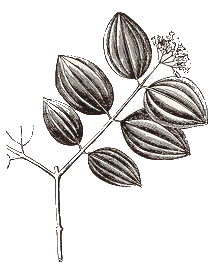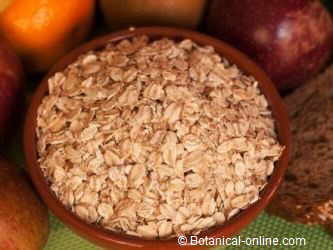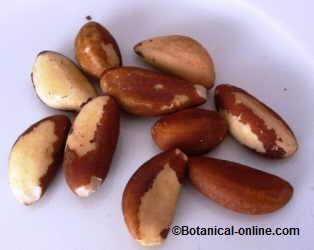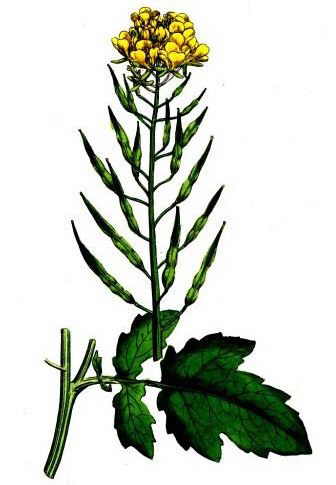Contents
- 1 Fruit composition
- 1.1 Importance of fruit in the human diet
- 1.2 Is fruit very important in the diet?
- 1.3 WHY IS FRUIT SO IMPORTANT IN THE HUMAN DIET?
- 1.4 Fruits are rich in minerals
- 1.5 Fruits are rich in fiber
- 1.6 Fruits contribute to a better metabolism
- 1.7 Fruits contain many phytochemicals
- 1.8 What are the main components of fruit?
Fruit composition
Importance of fruit in the human diet
Is fruit very important in the diet?
The importance of fruit in food has been valued since ancient times, to the point that the ancients called “the food of the gods” and gave it magic or divine properties. There are many references as the temples were full of fruit dedicated to their gods. Fruit appeared in ritual ceremonies as part of the decoration of the temples, objects of worship or dresses.
Fruits are one of the most important foods within the natural plant foods. Fruits along with vegetables provide many vitamins and minerals, so that they should be present in every meal.
We can be sure that if we eat fruits and vegetables, we will never have a lack of vitamins or minerals. Water-soluble vitamins (B and C) are not stored in the body, so we need to eat foods that normally contain them.
Vitamin C, for example, in addition to being a powerful antioxidant, contributes to good bone health, helps heal wounds besides reinforcing the action of vitamin E, another potent antioxidant.
Eating regularly citrus (oranges, grapefruits, lemons, etc..), berries and peppers, among others, is a good way to get this vitamin.
WHY IS FRUIT SO IMPORTANT IN THE HUMAN DIET?
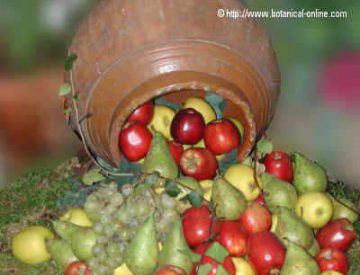
Fruit jar as a symbol of wealth
Fruits are rich in minerals
The acquisition of minerals is essential for good health. Iron, for example, is necessary for the development of hemoglobin, a substance that, in addition to color blood cells red, is responsible for carrying oxygen to the cells.
Hemoglobin deficiency is one factor that causes a disease called anemia. Although there are animal foods such as meat and fish that provide iron, we also can get it from vegetables.
Lentils, for example, are a good source of this mineral.
Fruits are rich in fiber
Fruits provide fiber, that part of the plant that our digestive system can not digest, but it is so important for expelling feces. But plenty of fiber intake is not only just a useful way to prevent constipation. Recent studies have shown that a diet high in fiber reduces cholesterol, helps diabetics control blood sugar and prevents the development of colon cancer. Fruits with lot of fiber are: pears, strawberries, apples, citrus, cranberries, grapes etc.
Fruits contribute to a better metabolism
In addition to provide vitamins and minerals to the body, fruits help achieve acid-base balance of the body by neutralizing excess of acidity.
For its content in potassium and magnesium it helps eliminate excess of fluids, nitrogen and chlorides waste, so that it purifies the body.
For its high water content – between 80 and 90% of their weight – it is an ideal way to hydrate your body while you bring enough energy in the form of simple carbohydrates (fructose, sucrose and glucose), all of them very digestible types of sugar.
Fruits contain many phytochemicals
Besides vitamins, minerals, carbohydrates and fiber, we can forget other components called phytochemicals, which turn fruits into a health source. Apple, for example, contains pectin, whose value to treat diarrhea and other gastrointestinal diseases has been known since antiquity.
Grapes contain resveratrol, a colouring component, which improves circulation and prevents heart attacks.
Pineapples contain bromelain, an enzyme that helps digestion.
Cherries are particularly suited to prevent arteriosclerosis and rheumatic diseases. Cherry tails can also even be profited to make tea for weight loss treatment.
Watermelons are one of the best medicines to cleanse your kidneys.
Properties of fruits are numerous and naming them all in this article would be virtually impossible. A tour through the sections of natural foods and medicinal plants within this site will let us know many things about them.
What are the main components of fruit?
The main components that fruits contain are:
- Minerals
- Vitamins
- Flavonoids
- Fiber
- Saponins
- Phenols
- Carotenoids
- Isocyanates
![]() More information on fruits
More information on fruits


